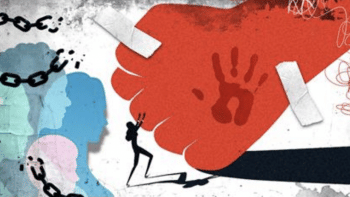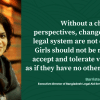Fix the system to prevent rape

A report published by this daily on Monday reveals a disturbing yet familiar picture of women's safety in Bangladesh. Citing data collected by the Ain O Salish Kendra (ASK), it states that a female has been raped every nine hours on average between January 2020 and September 2024. This translates to at least two rapes each day. To call this horrifying would be an understatement. More importantly, this highlights yet again how the country has been systematically failing half of its population.
During the above-mentioned period, a total of 4,787 cases of rape were reported in the media. Of those, police cases were filed for 3,419, meaning about one-third were not reported to law enforcement. It's not unreasonable to assume that there were even more incidents that didn't reach the media, as the stigma surrounding rape as well as threats of retribution continue to deter victims and their families from seeking justice. Unfortunately, despite numerous awareness campaigns and the authorities' promises to ensure safety and justice for women, our society has yet to undergo an effective shift to prevent gender-based violence.
For those who can overcome initial barriers, however, more hurdles await, as victims must endure distressing environments in court, lengthy legal battles that can be mentally and financially taxing, and also a lack of empathy across the justice system (from police stations to courts). Police data from the first nine months of 2024 also shows their arduous and often futile legal battles, with around 68 percent of those accused in cases of violence or abuse against women remaining at large. Police authorities say this is not due to a lack of capacity. Should we then assume a lack of interest?
The existing justice system for sexual and gender-based violence is deeply flawed. Delays in arrests in rape cases, combined with protracted legal proceedings, place the burden on victims and their families rather than on the perpetrators. Furthermore, there is still no specific law for victim and witness protection, despite the existence of a vetted draft. Nor is there a state-sponsored compensation mechanism which could encourage victims, especially those from underprivileged communities, to pursue justice. This cannot be the norm in a civilised, modern nation.
We urge the government to address the harsh reality that half of our population endures, and to incorporate modern, empathetic mechanisms for pursuing justice in cases of rape and other forms of gender-based violence into ongoing reform efforts. Ensuring women's safety and access to justice is essential if we are to build a society that truly values and protects all its citizens.


 For all latest news, follow The Daily Star's Google News channel.
For all latest news, follow The Daily Star's Google News channel. 











Comments